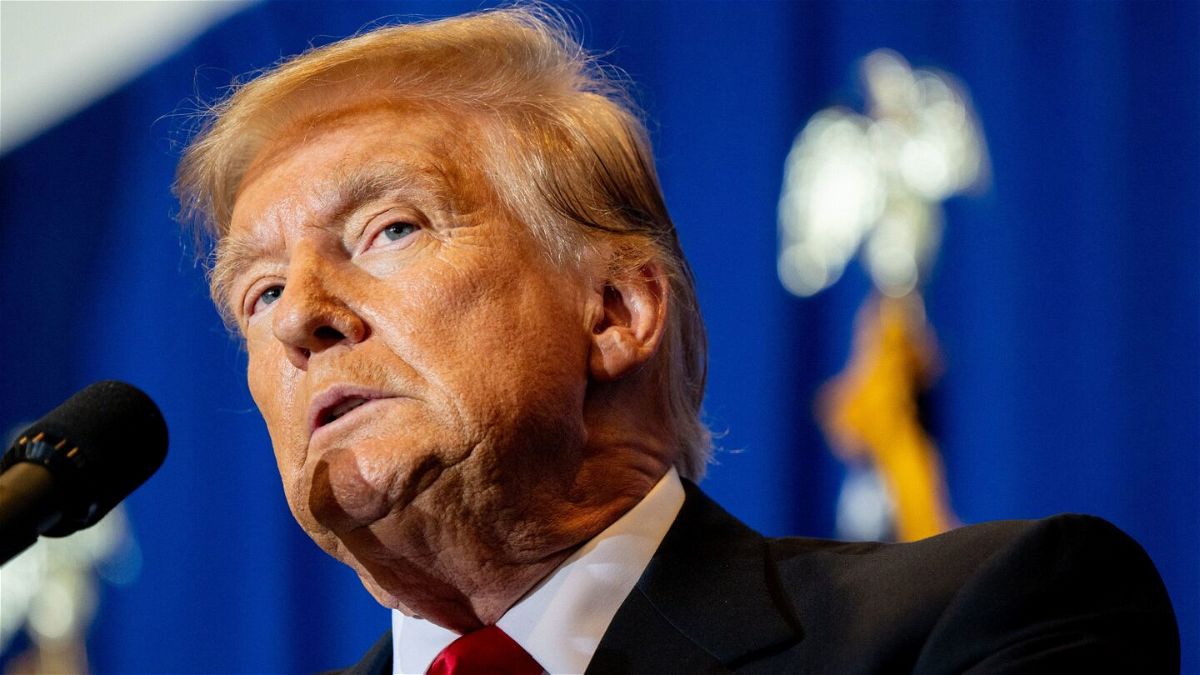Maine judge defers decision on Trump ballot question until Supreme Court rules

Former President Donald Trump speaks during a campaign rally at the Atkinson Country Club on January 16 in Atkinson
By Marshall Cohen, CNN
(CNN) — A Maine judge on Wednesday told state election officials to wait for the US Supreme Court to rule on Donald Trump’s eligibility for the 2024 presidential ballot.
Trump asked the judge to overturn a prior decision that removed him from the Maine ballot, but the judge declined to do that, pausing the proceedings until the Supreme Court weighs in. Practically speaking, Wednesday’s decision means that Trump’s name is still on the ballot for the Maine GOP primary on March 5, which is Super Tuesday.
The Supreme Court plans to hear oral arguments in a similar case from Colorado early next month. Maine and Colorado are so far the only states to disqualify Trump based on his role in the January 6, 2021, Capitol riot.
Under Maine law, ballot challenges are first handled by the secretary of state, and then can be appealed in state courts. A group of voters filed a challenge in December and Maine Secretary of State Shenna Bellows ruled that Trump was ineligible for office.
Kennebec County Superior Court Judge Michaela Murphy, who issued Wednesday’s ruling, was appointed to the state bench by a Democratic governor in 2007 and then re-appointed in 2015 by then-Gov. Paul LePage, an outspoken Republican and Trump supporter.
Trump and his GOP allies have slammed Bellows, a Democrat, unsuccessfully tried to take her off the case, and criticized her as a liberal zealot who was unfairly undermining his campaign. She has also received death threats and was the target of a swatting incident last month. Bellows said her decision was solely based on the facts and the law.
While Trump’s critics have succeeded in Maine and Colorado, their efforts fell flat in several other key states where their lawsuits were dismissed on procedural grounds and never reached the critical questions about January 6. This includes cases in Minnesota, New Hampshire, Michigan and Oregon.
The 14th Amendment, ratified after the Civil War, says US officials who take an oath to uphold the Constitution are banned from future office if they “engaged in insurrection.” But the Constitution doesn’t say how to enforce the ban, and there’s an open legal debate over how it applies to the January 6 attack.
Both Trump and the challengers asked the judge to pause any final ballot decisions in Maine until a ruling from the Supreme Court, according to Wednesday’s decision. Murphy said it was “rare” to grant such a request, but “under these circumstances, it is appropriate.”
“Because many of the issues presented in this case are likely to be resolved, narrowed, or rendered moot by the Supreme Court’s decision in (the Colorado case), the Court concludes that a remand is necessary,” Murphy wrote, sending the case back to the secretary of state, where it originated.
“While it is impossible to know what the Supreme Court will decide,” Murphy wrote, “hopefully it will at least clarify what role, if any, state decision-makers, including secretaries of state and state judicial officers, play in adjudicating claims of disqualification brought under Section Three of the Fourteenth Amendment.”
This story has been updated with additional details.
The-CNN-Wire
™ & © 2024 Cable News Network, Inc., a Warner Bros. Discovery Company. All rights reserved.